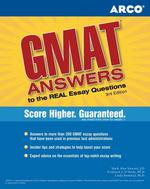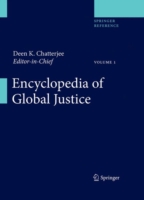Full Description
A Critical Introduction to Philosophy of Language is a historically oriented introduction to the central themes in philosophy of language. Its narrative arc covers Locke's 'idea' theory, Mill's empiricist account of math and logic, Frege and Russell's development of modern logic and its subsequent deployment in their pioneering program of 'logical analysis', Ayer and Carnap's logical positivism, Quine's critique of logical positivism and elaboration of a naturalist-behaviorist approach to meaning, and later-Wittgenstein's 'ordinary language philosophy'-inspired rejection of the project of logical analysis. Thus, it historically situates the two central programs in early twentieth-century English-speaking philosophy -- logical analysis and logical positivism -- and discusses the central critiques they face later in the century in the works of Quine and the later-Wittgenstein. Unlike other secondary studies in philosophy of language, A Critical Introduction to Philosophy of Language is not just a 'greatest hits album', i.e., a discontinuous compilation in which classics in the field are presented together with their standard criticisms one after the other. Instead, Fennell develops a particular, historical-thematic narrative in which the figures and ideas he treats are introduced in highly intentional ways. And by cross-referencing them throughout his discussions, he highlights the contributions they make to the narrative they comprise.
Contents
Introduction: Logico-Semantics, Logical Positivism and their Discontents
Chapter One: The Classical Empiricist Account of Meaning
§ 1.1: The Inessentiality of language
§ 1.2: The "'Idea' Idea"
§ 1.3: The Primacy of the Naming Relation
§ 1.4: The Linguistic Turn, Anti-Psychologism, and the Primacy of the Sentence
§ 1.5: Logical Analysis
Chapter Two: Classical Empiricism and the Problem of the A Priori: Mill, Kant, and Frege
§ 2.1: Some Background Distinctions: A Priori/A Posteriori, Analytic/Synthetic, Necessary/Contingent
§ 2.2: Mill
§ 2.3: Kant
§ 2.4: Frege
§ 2.5: Appendix: Russell's Set-Theoretic Paradox
Chapter Three: Frege's Begriffsschrift
§ 3.1: Logic and its Limitations
§ 3.2: Function and Argument
§ 3.3: Predicates, Quantifiers and the Solution to the Problem of Multiple Generality
§ 3.4: Sentence Connectives and the Solution to the Problem of a Unified Logical Notation
§ 3.5: Identity
§ 3.6: Appendix: Concordance between Begriffsschrift Notation and the Kalish/Montague/Mar Notation
Chapter Four: Frege on Sense and Reference
§ 4.1: Three Semantic Puzzles for a Reference-Only (Extensionalist) Account of Meaning
§ 4.2: The Sense/Reference Distinction
§ 4.3: The Problems of Non-Referring Singular Terms and Identity Statements
§ 4.4: The Problem of Belief Contexts
§ 4.5: Problems with Frege's Solution
§ 4.6: Definite Descriptions and Some Further Consequences of Frege's Sense/Reference Distinction
Chapter Five: Russell's Theory of Descriptions
§ 5.1: Scope and Basic Strategy of the Theory of Descriptions
§ 5.2: The Theory Applied to Definite Descriptions, including Non-Referring Definite Descriptions
§ 5.3: Four Key Features of Russell's Analysis of Definite Descriptions
§ 5.4: Russell's Solutions to Some Semantic Puzzles
§ 5.5: Russell's Theory and Excluded Middle
§ 5.6: Critical Discussion (I): Strawson
§ 5.7: Critical Discussion (II): Donnellan
Chapter Six: Kripke's Causal Theory of Reference
§ 6.1: Core Features of Russell's Theory
§ 6.2: Three Key Problems for Russell's Description Theory
§ 6.3: The Cluster Theory and its Analogous Problems
§ 6.4: Correct Descriptions are neither Necessary nor Sufficient for Names to Refer
§ 6.5: The Causal Theory of Reference-Grounding and Reference-Borrowing
§ 6.6: The Causal Theory's Solution to the Three Problems
§ 6.7: Rigid Designation and Necessary A Posteriori Propositions
§ 6.8: The Distinction between Fixing the Reference and Giving the Meaning
§ 6.9: The Contingency of 'Hesperus is the evening star' v. The Necessity of 'Hesperus is Phosphorus'
§ 6.10: Problems for Kripke's View
Chapter Seven: Logical Positivism I: Ayer
§ 7.1: Three Central Doctrines of Logical Positivism
§ 7.2: Realist v. Anti-Realist Accounts of Meaning
§ 7.3: Versions of the Verification Principle
§ 7.4: The Problem of the A Priori (again)
§ 7.5: Questions regarding Conventionalism about Necessity and Logic
Chapter Eight: Logical Positivism II: Carnap
§ 8.1: Conventionalism
§ 8.2: Linguistic Frameworks
§ 8.3: Internal v. External Questions and Formal v. Material Mode
§ 8.4: Metaphysics and Tolerance
§ 8.5: The Status of Philosophy
Chapter Nine: Quine's Critique of Positivism I: 'Two Dogmas of Empiricism'
§ 9.1: 'No Entity without Identity'
§ 9.2: Two Different Conceptions of Synonymy: Definition and Substitution
§ 9.3: Epistemic Holism and the Rejection of Meaning and Synonymy
§ 9.4: Epistemic Holism and the Elimination of the Analytic/Synthetic Distinction
§ 9.5: Epistemic Holism and the Web of Belief
§ 9.6: Epistemic Holism, Fallibilism and the History of Science
Chapter Ten: Quine's Critique of Positivism II: Anti-Conventionalism
§ 10.1: Quine's Problems with Conventionalism
§ 10.2: Quine's Pragmatic Account of Logic and Necessity
§ 10.3: Problems with Quine's Pragmatization of Logic: Dummett and Davidson
Chapter Eleven: Quine: Radical Translation and the Indeterminacy of Meaning
§ 11.1: Occasion Sentences, Standing Sentences, Stimulus Meaning, and Stimulus Synonymy
§ 11.2: The Argument for Indeterminacy: Holism and Behaviorism
§ 11.3: First-Personal and Ontological Indeterminacy v. Third-Personal and Epistemological Under-Determination
§ 11.4: The Principle of Charity: Pragmatic or Constitutive
§ 11.5: Some Problems with Charity and Logic.
Chapter Twelve: Later-Wittgenstein I: Ordinary Language Philosophy and the Critique of Ostension
§ 12.1: Ordinary Language Philosophy, Grammatical Investigations and Language Games
§ 12.2: The Critique of the Augustinian Picture: The Language Games of the Grocer and the Builders
§ 12.3: Wittgenstein's Critique of Ostensive Definition
Chapter Thirteen: Later-Wittgenstein II: The Rule-Following Considerations
§ 13.1: The Problem of Meaning Scepticism
§ 13.2: Algorithms and Dispositions
§ 13.3: Kripke's Interpretation of Wittgenstein: Community Dispositionalism and the 'Sceptical Solution'
§ 13.4: Textual Evidence For and Against Kripke's Interpretation of Wittgenstein
§ 13.5: Normatively-Rich Practices: Sociality
§ 13.6: Normatively-Rich Practices: Contextualism and Fallibilism
Chapter Fourteen: Later-Wittgenstein III: The Private Language Argument
§ 14.1: The Relation between the Rule-Following Discussion and the Private Language Argument
§ 14.2: The 'Independent Check' Argument
§ 14.3: The Independent Check Argument Evaluated: Ayer's Objection and Kripke's Footnote 47
§ 14.4: The Grammatical Status of Two Statements of Privacy
§ 14.5: The Expressive (Not Descriptive) Grammar of Sensation Talk
§ 14.6: Wittgenstein and Behaviorism







